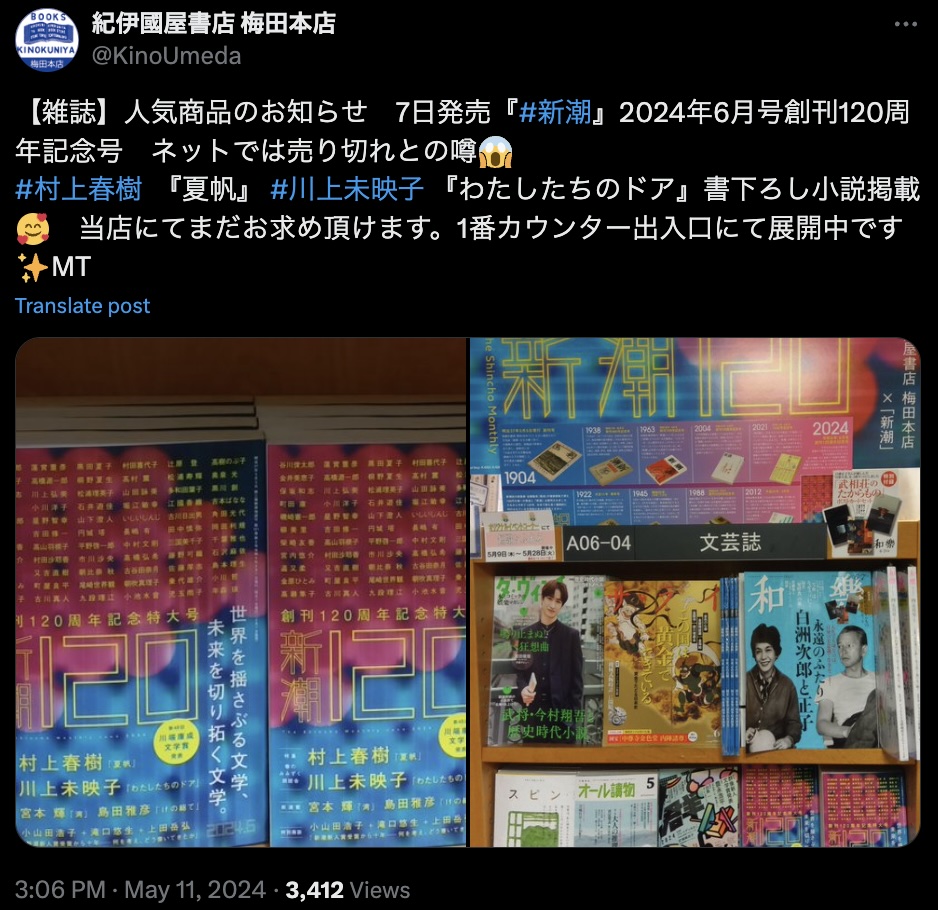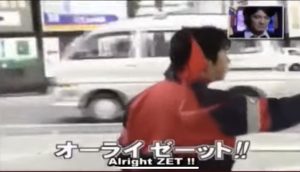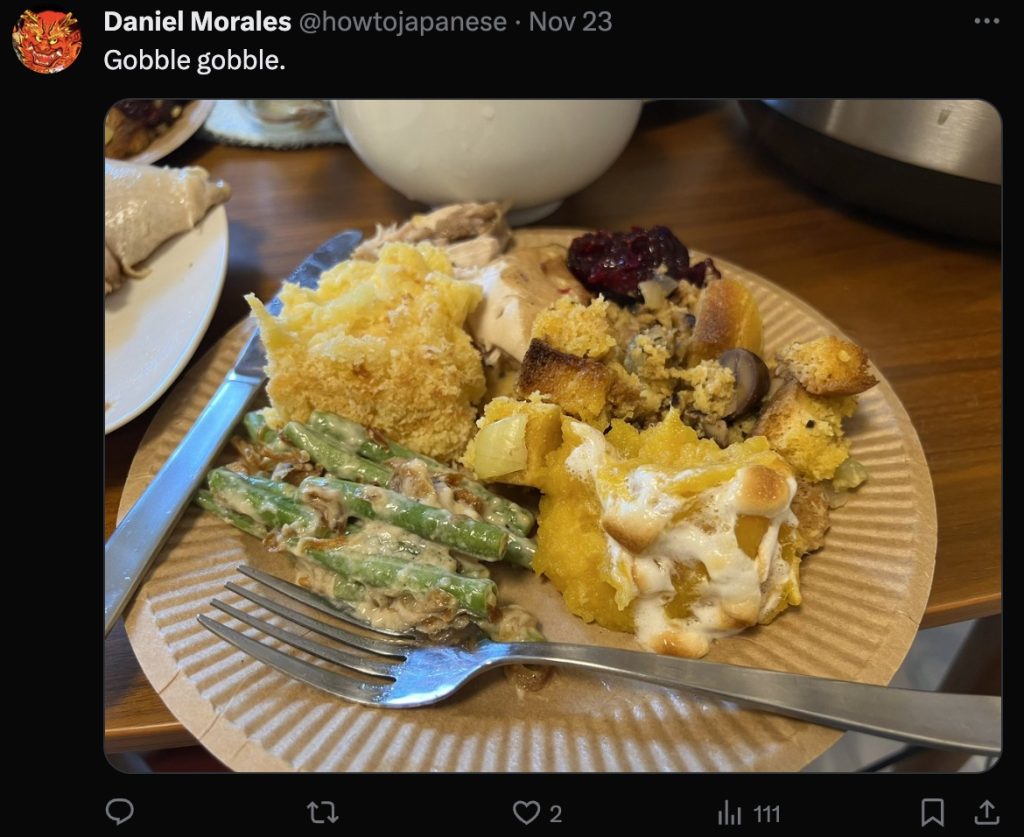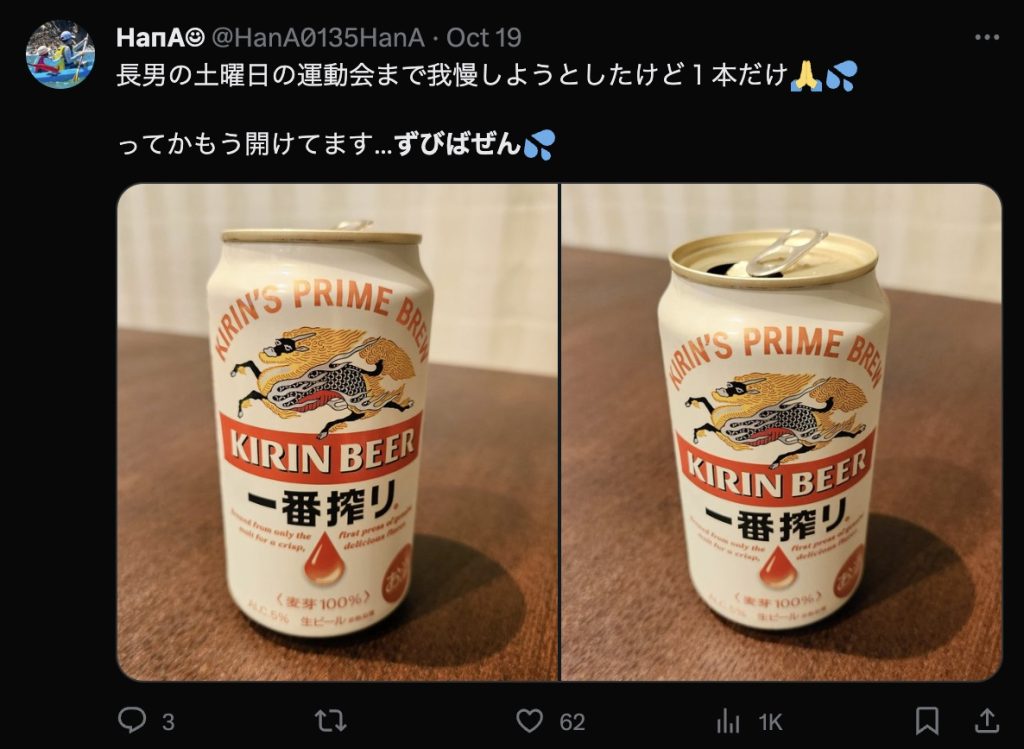In the newsletter this month I did a check-up on my kanji study. The prognosis? DOA.
I haven’t done a serious kanji repetition for over a year now. I don’t regret the two years I spent using an Anki deck to go through the 常用漢字 (jōyō kanji, ordinary use kanji), but I do wonder whether daily writing in a journal from the very beginning of my studies—23 years ago this summer—would have had a bigger benefit. Just write! Write every damn day! Write any kanji you know, not with the goal of learning more (which you’ll do naturally if you’re in a college course, or on your own separately through dedicated kanji study), but with the goal of creating your own, organic system of repetition.
One of the main motivations behind this practice, which I did for a few months last year before a trip home in November, was to buy some cool 原稿用紙 (genkō yōshi, manuscript paper) notebooks, the same kind that Murakami used when he was writing his early novels, including Norwegian Wood.
Thanks to his book 遠い太鼓 (Distant Drums) which I’ve been slowly reading through over the past few years, we know a lot of detailed information about Murakami’s process of drafting and editing Norwegian Wood. We know that it was 900 manuscript pages; that he finished a draft on March 7, 1987, in a marathon 17-hour writing session in Rome; that the next day he started writing out a second draft of the novel; and that he completed the revision/redrafting process on March 26. This means that on March 26, he was in Rome with at least 1,800 manuscript pages.
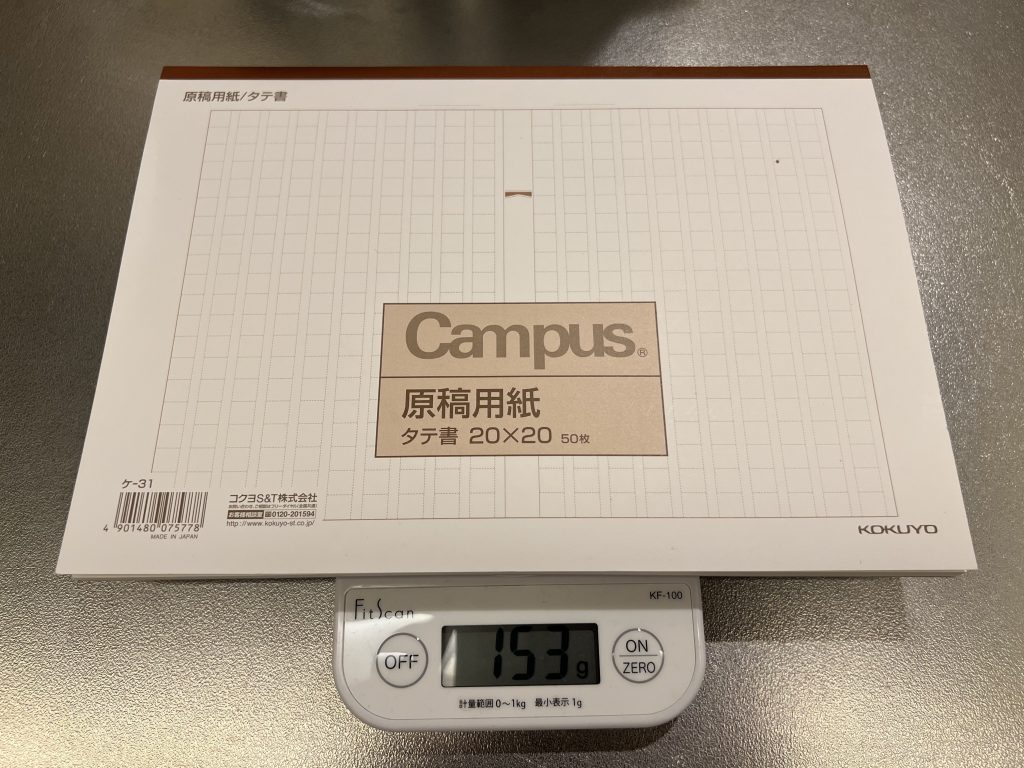
The notebooks I’ve been using have 50 pages each, which means that this would have been 36 notebooks if Murakami was using something similar. Each one of these notebooks weighs 153 g, which means that the 36 that Murakami was lugging around could potentially have weighed 5,508 g or 5.5 kg = 12.14 lbs, which the internet tells me is about the same weight as four human brains. In a more useful comparison, this is about the size of one slightly larger than average cat.
So Norwegian Wood doesn’t quite meet chonk status, especially when you divide the two drafts in two to get the 6.7 lbs that Murakami delivered personally to a Kodansha employee at the Bologna Children’s Book Fair.
Color me a little surprised. I never knew you could fit so much on a single manuscript page. Even The Wind-up Bird Chronicle was only 2,500 pages total, according to the internet, which means it would have weighed 7.65 kg = 16.87 lbs. A bit chonkier to be sure.
Fortunately for Murakami, he switched to a word processor well before that novel, so he would not have needed to lug notebooks around the U.S. as he was writing.
Check out more on kanji and notebooks in the podcast this month:

